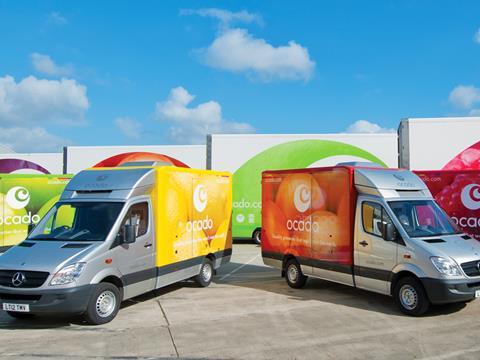
Top story
Retail revenues at Ocado slowed by 5.7% in the first quarter of its financial year as shopping habits returned backed towards pre-pandemic levels.
Retail revenues were down 5.7% in the 13 weeks to 27 Feburary at £564.7m.
Ocado said that level remains up 31.7% against its first quarter in 2020 and is only just below a wider 4% drop in UK grocery market said.
Active customer numbers grew 31% year-on-year to 835,000 while customer orders grew by 11.6%, reflecting strong customer acquisition and despite the tail-end impact of labour shortages early in the quarter
However, average basket size of £124 was 15% lower than last year as customer behaviours return towards pre-Covid levels, reflecting the continued easing of pandemic restrictions and return to more in-office working.
Ocado said “the shape of demand in the week continues to reflect the return towards the peaks and troughs of pre-COVID customer behaviours”.
Despite this, its capacity roll-out is on track, with Bicester CFC bringing a further 30k OPW in the second half, taking total CFC capacity at live sites, at maturity, for Ocado Retail to over 630k OPW by the end of the year.
During the quarter the group said it saw “significant” increases in raw materials and product cost prices, energy, utilities, and dry ice, which have added further cost headwinds for the grocery industry in the UK.
Ocado said it has been working closely with suppliers to actively manage this level of inflation, with the business moving certain retail prices, where costs could not be mitigated, in line with the rest of the market.
Looking forwards, it said the scale of food price inflation over the course of this year, coupled with the overall level of market demand as the cost of living increases, particularly rising energy costs, remains difficult to predict.
“We intend to continue to offer the best possible value to customers while recognising the overall level of pricing in the market,” it said.
However, these uncertainties over inflation, which have increased significantly in recent weeks due to the war in Ukraine, the overall level of market demand, and the continued return to pre-Covid shopping patterns, mean that while easier comparatives, strong customer demand, and further growth in capacity, should see revenue growth end the year in the high-teens, the full-year growth rate “may be closer to 10%”.
EBITDA margins may be further impacted by the significant increases in energy costs where uncertainty remains. To offset this impact, Ocado said it is undertaking a series of mitigating cost measures across the group.
Melanie Smith, Ocado Retail CEO, commented: “The last quarter has been encouraging for Ocado Retail despite the clearly evident challenges the industry and consumers are facing. Of course, as we have seen since the end of COVID restrictions, the value of the average basket and shape of the week continue to normalise as we return towards the rhythm of our pre-COVID lives. Given that we are comparing a post-lockdown quarter this year with a lockdown quarter last year, this has meant that sales were down 5.7% in the quarter, not helped by the softening market overall, with smaller baskets offsetting the increase in the number of customer transactions in the quarter.
“Long term, we are confident that the trajectory of growth remains positive. That growth is underpinned by our quality customer service and high customer satisfaction (we were recently named Which UK’s recommended online supermarket) and enabled by our investment in new hyper-efficient automated customer fulfilment centres which bring wide ranges, the freshest produce, and the best on-time delivery in the market, all at fair value, across the full range of price points, to our fast growing number of UK customers.”
Ocado shares are down 7.4% to 1,115p on the news.
Morning update
Deliveroo lost almost £300m last year as it continues to invest in growth across multiple markets.
In 2021, revenue was £1,824.4 million, an increase of 57%.
This was below the growth rate in gross transaction value, which was up 70% in constant currency, reflecting a reduction in the revenue take rate to 27.5% in 2021 from 29.2% in 2020.
The group said this reduction was the result of a lower blended commission rate (primarily due to mix shifts), and lower consumer fees as a percentage of GTV* (primarily due to growth in Plus, where consumer fees can be lower on a per order basis).
During the year it saw further UK market share gains as UKI grew GTV by 71% year-on-year and UK population coverage expanded to 77% at end-2021 from 53% at end-2020.
The group also strengthened its on-demand grocery position, reaching 8% of GTV in 2021, with 11,000 partner sites live globally at end-2021 from 7,000 at end-2020.
Gross profit for the year was £497.3m, an increase of 43% compared to 2020, with gross profit margin of 7.5% in 2021 compared to 8.7% in 2020.
Investment in marketing and overheads increased substantially in 2021 compared to the prior year. During most of the year the company took a conservative approach to deploying capital, but in Q4 the group was much better positioned to increase investment, with a strong capital position following the conclusion of the CMA investigation and new funding.
Marketing and overheads were £628.7 million in 2021 compared to £358.5 million in the prior year, with strong investments in marketing and technology.
This investment meant adjusted EBITDA loss was £131.4m compared to £10.8m in 2020 and operating loss for the period was £304.3m up from £208.8m in 2020.
Founder and CEO Will Shu commented: “We have continued to make good progress in executing our strategy and I am proud of our performance in 2021.
“We are pleased to have strengthened our proposition for our marketplace in 2021, increasing choice for consumers, offering riders more security in the form of improved insurance, and giving our restaurant and grocery partners opportunities to grow their businesses.
“We are excited about the opportunities ahead and have today laid out our plans on our longer-term path to profitability. We aim to reach breakeven at some point during H2 2023-H1 2024 on an adjusted EBITDA basis. And by 2026, we aim to reach a 4% adjusted EBITDA margin, with further upside potential beyond 2026.
“At the same time, this year it is clear that all three sides of our marketplace in Europe will face headwinds due to inflationary pressures, the removal of economic stimulus and the broader geopolitical and economic impacts of the conflict in Ukraine. We will continue to monitor developments closely. Our 2022 guidance reflects our caution on these factors, but we are confident in our ability to adapt financially to a rapidly changing macroeconomic environment.”
2022 GTV growth is expected to be in the range of 15-25% (in constant currency), with higher growth rate in H2 than in H1, given tough comparison base in H1 as last year’s COVID restrictions are lapped
Adjusted EBITDA is expected to be in the range of negative 1.5-1.8% as a percentage of GTV, which would represent a slight improvement against -2% in 2021.
It said guidance for 2022 reflects current uncertainties, particularly across European markets, due to inflationary pressures, post-COVID consumer behaviour, and the broader geopolitical and economic impacts of the conflict in Ukraine.
Deliveroo shares are up 5.8% to 123.4p on the update.
On the markets this morning, the FTSE 100 is up another 0.3% to 7,313.6pts.
Risers include FeverTree, up 4.6% to 1,855p, THG, up 4.2% to 95.6p and Coca-Cola Europacific Partners, up 3.8% to 47p.
Fallers include Parsley Box, down 4.6% to 20p, Ocado partner Marks & Spencer, down 3% to 162p and McBride, down 2.9% to 42.3p.
Yesterday in the City
The FTSE 100 made a strong recovery yesterday, jumping 1.6% to 7,291.7pts, partly driven by tentative hopes of peace in Ukraine.
FeverTree jumped 9.1% to 1,774.5p after posting strong annual growth yesterday.
C&C Group was also up 9.3% to 207.8p despite warning profits will be lower than forecast as the Omicron variant disrupted trading over Christmas.
Other risers included THG, which jumped 11.1% to 91.7p, Just Eat Takeaway.com, up 8.4% to 2,672p, McColl’s up 6.3% to 2.13p, Kerry Group, up 5.6% to 100.9p, SSP Group, up 5.6% to 253.5p, SSP Group, up 5.6% to 253.5p, Coca-Cola HBC, up 5.4% to 1,684p, DS Smith, up 5.2% to 335.1p and Greggs, up 5.1% to 2,492p.
The day’s few fallers included Nichols, down 1.5% to 1,280p, Devro, down 1.3% to 196.4p, AG Barr down 0.6% to 489.5p and McBride, down 0.6% to 43.5p.







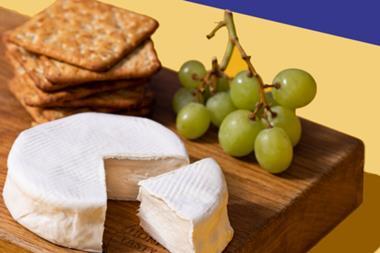
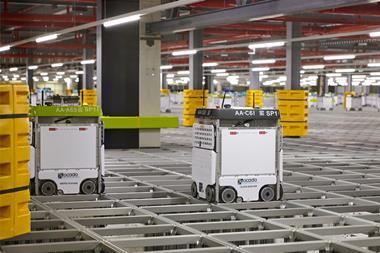
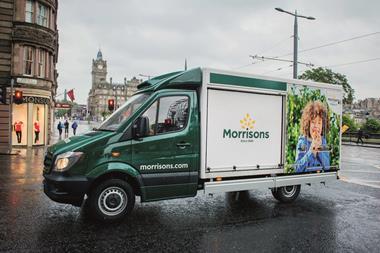
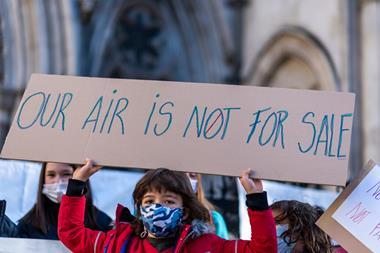
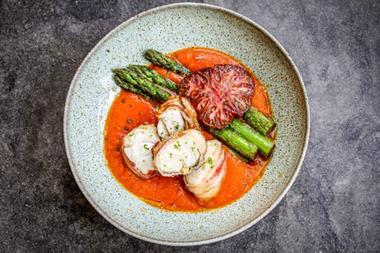
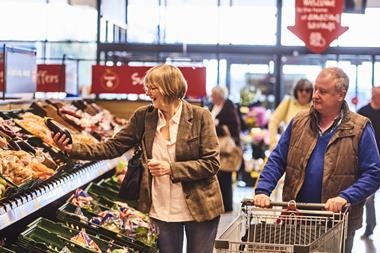






No comments yet